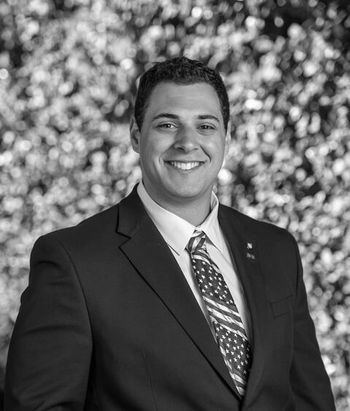'You are hereby warned': Legal group tells law schools to back off plans to circumvent SCOTUS affirmative action ruling
America First Legal sent letters to law schools across the country to stop them from trying to end-run the Supreme Court’s decision on affirmative action.
'Any such regime—for example, relying on biography over qualifications—to achieve desired racial outcomes is clearly illegal and unconstitutional, and you will face legal repercussions accordingly.'
America First Legal sent letters to law schools across the country to stop them trying to end-run the Supreme Court’s decision on affirmative action.
The conservative legal watchdog sent demand letters to every law school in the country– more than 200 in total, demanding that they immediately cease using race-based factors in admissions, hiring, and law-review membership and publication. The letters threaten schools with legal action if they attempt to circumvent or outright fail to comply with the Supreme Court’s rulings banning affirmative action in Students for Fair Admissions, Inc. v President and Fellows of Harvard College and Students for Fair Admissions, Inc. v. University of North Carolina.
”It is unlawful for Harvard University Law School to flout the Constitution and the unambiguous command of Title VI by admitting students with lower LSAT scores and academic credentials than those demanded of others based on their race, sex, or national origin,” AF Legal President Stephen Miller wrote in a letter to Harvard Law School Dean John F. Manning. “It is unlawful for your school to violate Title VI, Title VII, and Title IX in its faculty hiring by discriminating in favor of female and minority faculty candidates at the expense of others. It is unlawful for your school to allow their student-run journals to give discriminatory preferences to women and minorities in membership and article selection.”
AF Legal sent similar letters to the other schools.
The letters demanded that the universities immediately terminate all preferential treatment on the basis of race, sex, and national origin in student admissions, faculty hiring, and law review membership and publication. Furthermore, it called on each school publish an official policy prohibiting every part of the law school from using race or nationality as the basis for any sort of preferential treatment.
“There are those within and outside your institutions who will tell you that you can develop an admissions scheme through pretext or proxy to achieve the same discriminatory outcome,” Miller wrote. “Anyone telling you such a thing is coaching you to engage in illegal conduct in brazen violation of a Supreme Court ruling, lawbreaking in which you would be fully complicit and thus fully liable.”
”You are hereby warned.”
”Any such regime—for example, relying on biography over qualifications—to achieve desired racial outcomes is clearly illegal and unconstitutional, and you will face legal repercussions accordingly.”
Miller concluded by saying that AF Legal would represent victims of illegal discrimination and sue any school that violates the law of the land.
AF Legal’s letters come in response to universities themselves pledging to continue their diversity efforts, even if it means circumventing the Supreme Court’s ruling. Dozens of colleges and universities pledged to maintain the diversity focus of their campus activities even after the SCOTUS ruling. These statements seemed to imply that the schools would find ways to work around the ruling to do so.
[RELATED: Legal watchdog demands answers on child gender treatment from university health centers]
Harvard’s response heavily implied that it would use a loophole in the majority opinion to overtly circumvent the ruling. “The Court held that Harvard College’s admissions system does not comply with the principles of the equal protection clause embodied in Title VI of the Civil Rights Act,” read a statement released after the decision. “The Court also ruled that colleges and universities may consider in admissions decisions ‘an applicant’s discussion of how race affected his or her life, be it through discrimination, inspiration, or otherwise.’ We will certainly comply with the Court’s decision.”
Campus Reform reached out to America First Legal for comment. This article will be updated accordingly.

